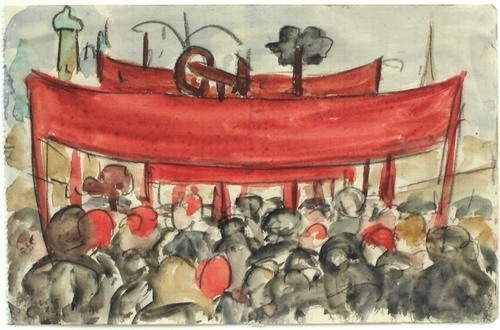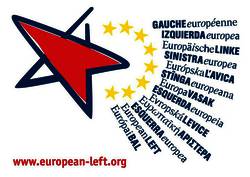Building socialism for the 21st century: interview with Michael A. Lebowitz

[For more articles by or about Michael Lebowitz, click HERE.]
Michael A. Lebowitz interviewed by Darko Vesić and Aleksandar Stojanović
May 7, 2013 -- Left East,suggested to Links International Journal of Socialist Renewal by Michael Lebowitz.
Darko Vesić and Aleksandar Stojanović: Capitalism has been in crisis for several years now and in response to this crisis the capitalist states practice so-called austerity measures. If we look at the historical dynamics of capitalism in the last half century, we see that they responded to the crisis of the 1970s with what is now called “neoliberalism”. If the restoration of growth is what must be carried out as a response to the crisis, we can say that neoliberalism of the 1970s was successful. Yet, can we say same of present-day “austerity measures”?
Richard Seymour on the rise of a new left in Europe

By Richard Seymour
Malaysia: Urgent action needed for release of student activist Adam Adli

By Nalini Elumalai, executive director, SUARAM
May 21, 2013 -- Malaysia's human rights organisation Suara Rakyat Malaysia (SUARAM) requests your urgent intervention in the detention of Adam Adli (pictured above), student activist from Malaysia. SUARAM is dedicated to the protection of human rights defenders and aims to offer them concrete support in their time of need.
Brief description of the situation:
SUARAM condemns the arbitrary and unlawful detention of Student Activist, Adam Adli under the Section 4 of the Sedition Act[1] which prohibiting discourse deemed as seditious and if found guilty under the act, Adam could be jailed for up to three years, fined not more than RM5000, or both.
Farooq Tariq: Pakistan's right-wing and religious parties sweep election

The Awami Workers Party's Farooq Tariq on the campaign trail.
By Farooq Tariq
May 20, 2013 -- Green Left Weekly -- A right-wing wave swept Pakistan in the May 11 general elections. At the federal level, the conservative Pakistan Muslim League-Nawaz (PMLN) will form the government having won 35% of the vote.
Former Pakistan cricket captain Imran Khan's party, Pakistan Tehreek Insaaf, came second with 19% of the vote and surprised many. The Pakistan People’s Party (PPP), the ruling party for the past five years, came third with only 15% ― thanks to Sindh where it was able to fetch most of its votes.
Almost 62% of total votes went to right-wing and religious parties, for the first time in the history of Pakistan. Although the religious parties were not united in a single platform, the pro-Taliban Jamiat Ulema-i-Islam-Fazl (JUIF) still won 10 seats nationally. It also won 22% of the votes in Baluchistan and 1% in Khaiber Pukhtoon Khawa province, the two provinces bordering Afghanistan.
The right
Portugal: Left Bloc calls for a left government to confront austerity

For more on Portugal's Left Bloc, click HERE.
Murray Smith: The real European left stands up

By Murray Smith
Slovenia: Manifesto of the Initiative for Democratic Socialism

[The following document is the program of Slovenia's Initiative for Democrati
South Africa: Since 1994, a massive wealth shift from already poor to the 'uber-rich'

By Dale T. McKinley, Johannesburg
Swaziland: South Africa's high commissioner rejects democratic transformation

The Trade Union Congress of Swaziland (TUCOSWA) is banned and its leaders were arrested and prevented from celebrating Workers' Day (May 1) this year.
France: Front de Gauche calls huge march against austerity, for democratic renewal
Jean-Luc Mélenchon addresses the May 5, 2013, mobilisation in Paris. Part 2 below.
By Dick Nichols

Latin America's Turbulent Transitions: The Future of Twenty-First Century Socialism
